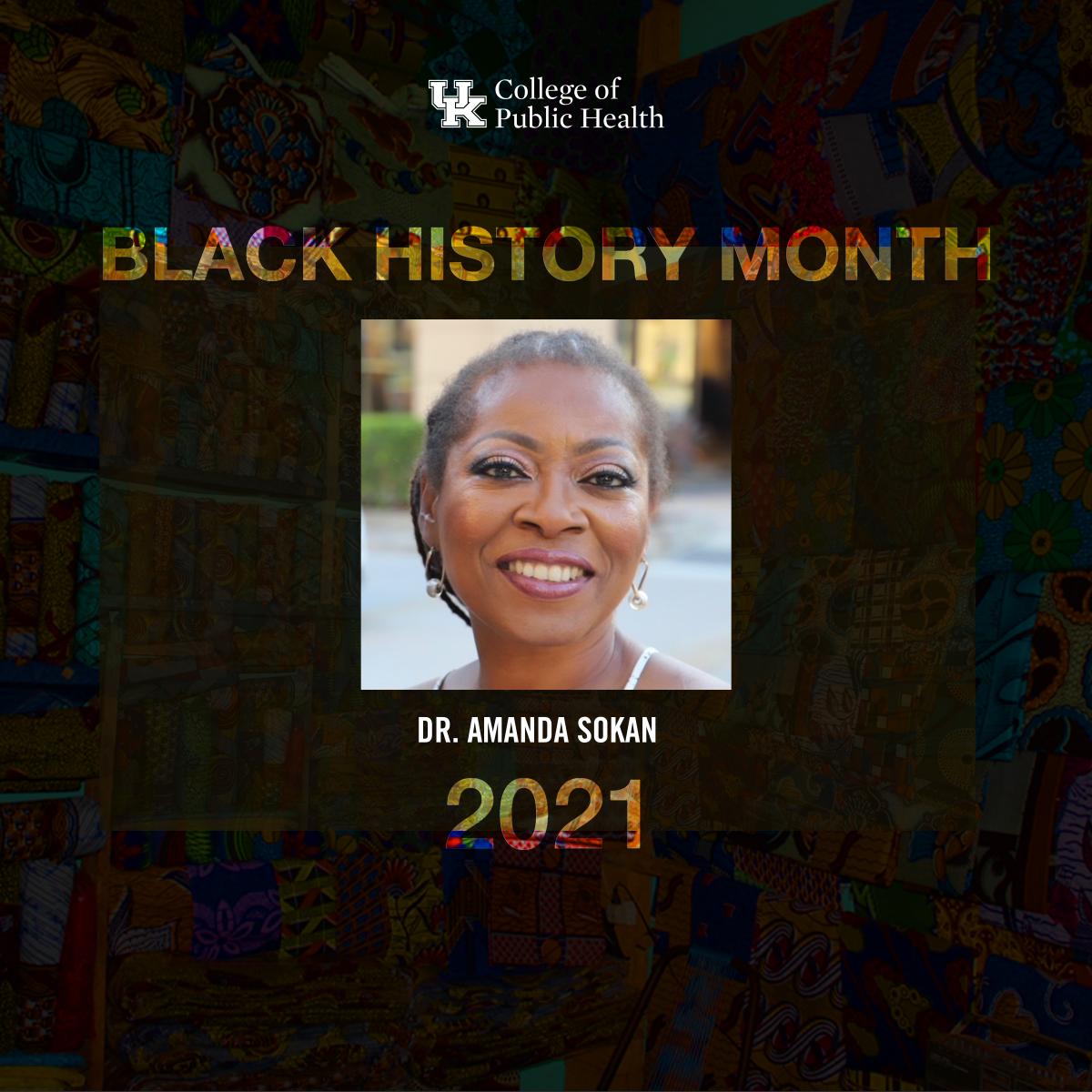
College of Public Health Alumni Profile: Dr. Amanda Sokan, MHA 2006 and PhD Gerontology 2011
In recognition of Black History Month, the College of Public Health is sharing interviews with some of our outstanding Black and African American alumni. We asked each of these individuals to reflect on the meaning of diversity, equity, and inclusion in their personal worldviews and in the field of public health.
Dr. Amanda Sokan, MHA 2006 and PhD Gerontology 2011
Assistant Professor, Division of Public Health Practice & Translational Research
Mel & Enid Zuckerman School of Public Health
University of Arizona
Can you describe your work in public health?
“I view myself first and foremost as an applied gerontologist – in my teaching, practice, research, and consultancy I focus on how to optimize the lived experience of older adults while recognizing their heterogeneity and supporting self-determination whenever possible.”
What do diversity, equity, and inclusion mean to you?
"Diversity is about differences and the value and importance of acknowledging, respecting, and accepting these differences. Equity is about parity, fairness, and giving to each according to their need. Inclusion is about providing a seat at the proverbial table for all, to create spaces or environments where all can be affirmed and thrive."
Why are diversity, equity, and inclusion important to public health?
"Well…who makes up the 'public' in public health? 'Public' encompasses a multiplicity and diversity of people and groups, health status, complex interplays of determinants of health and wellbeing, and plurality of environments. We cannot adequately, efficiently, and effectively address the public health needs of our population without recognizing the importance of addressing issues of diversity, equity, and inclusion."
How does your work contribute to the conversation regarding diversity, equity, and inclusion in public health?
"Public health has played and continues to play a critical role in increasing longevity. We now have a sizable part of the population that is 65 years of age and older. As a result, older adults and their public health concerns are becoming more germane. In many ways, older adults are a microcosm of the overall population – reflecting all the elements of diversity (race, ethnicity, gender, religion, sexual orientation, social class, rural versus urban) and the challenges and opportunities they engender – alone or in interaction with each other.
"My work is often in the nexus of healthcare and gerontology. In my classes, workshops, research, or work with older adults and their families, I focus on raising awareness about the importance of understanding the heterogeneity of older adults. I encourage the realization of older adults as our future selves (for those of us who get to be old) and advocate against the marginalization of older persons in public health policy, applications, and practice. It is important to include issues that impact and contribute to the physical, mental, and social health and wellbeing of older adults in our discourse. They include preventive care, health promotion and wellness, caregiving and receiving, age-friendly environments, loneliness and isolation, resilience, sexuality, and end-of-life matters. How these issues play out differs within the older population.
"Consider LGBTQ+ older adults. Meeting their health and wellbeing needs, and optimizing their lived experiences, requires a nuanced understanding of the history and impact of discrimination and stigma. We must consider environmental and personal factors, social determinants of health such as access to healthcare, and the availability of culturally competent and responsive healthcare providers and services. A commitment to policies and practices that improve health outcomes for older LGBTQ+ persons is paramount. Some special issues for older adults like elder abuse, isolation and paucity of knowledge in navigating healthcare systems may be more daunting for LGBTQ+ older adults. LGBTQ+ persons, whose life experiences may have impacted their economic resources as well as openness to health care providers, may struggle with barriers others do not. Empowering them to be advocates and savvy consumers of healthcare and social services is beneficial."
Dr. Sokan was named Gerontologist of the Year by the Arizona Geriatrics Society (AzGs)at the 2020 annual AzGS meeting.